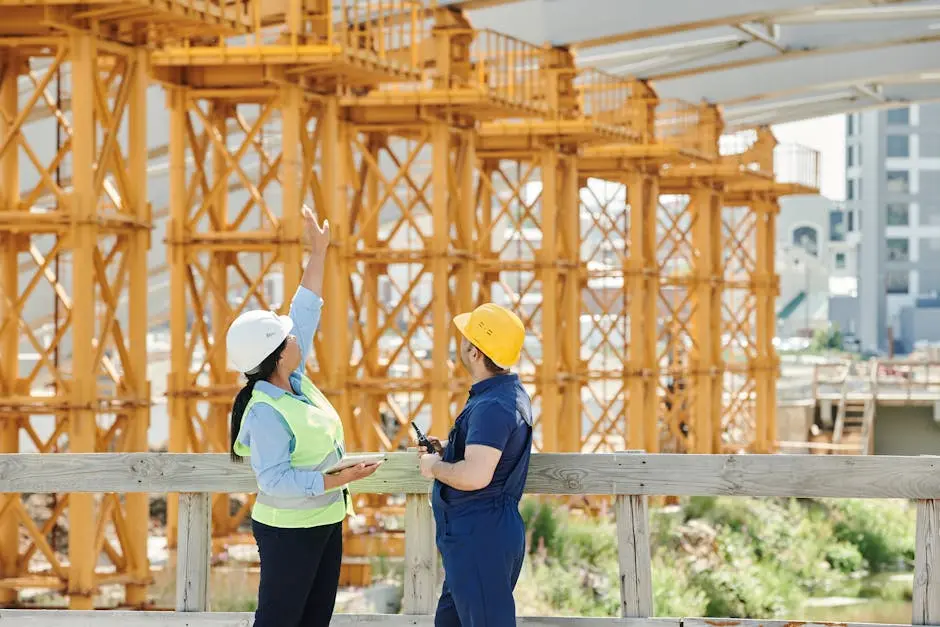Choosing the right construction company is crucial for the success of your project. Whether you’re planning to build a new home, renovate an existing space, or undertake a commercial construction project, finding a reliable and proficient construction company can be a daunting task. Here’s a guide to help you make an informed decision.

Experience and Expertise
Look for a construction company with a proven track record in handling projects similar to yours. Experienced companies are likely to manage your project efficiently and handle unexpected challenges effectively.
Consider the scope and scale of past projects they’ve undertaken. A company that’s well-versed in a diverse range of projects—whether residential, commercial, or industrial—demonstrates versatility and a broad skill set. By examining the variety of projects they’ve completed, you gain insight into their capability to deliver on your unique project needs.
A seasoned construction company will also be familiar with the latest industry standards and regulations. This is particularly important given how frequently building codes and safety regulations can change. Companies that stay updated with these standards ensure compliance, enhancing the safety and legality of your project.
Finding a construction company with specialized expertise can significantly benefit your project. For instance, if your project involves intricate architectural designs or eco-friendly structures, a company with a focus in these areas would bring valuable knowledge and innovative solutions to the table.
Furthermore, companies with substantial experience often have established relationships with suppliers and subcontractors. These connections can lead to cost savings and smoother project execution, thanks to established trust and streamlined operations.
Reputation and Reviews
Research online reviews and ask for references to get feedback from previous clients. A company with positive reviews and satisfied customers is more likely to deliver quality results.
In today’s digital age, reading construction industry blogs can provide deeper insights into a company’s reputation. These blogs often feature in-depth reviews and news about construction companies, giving you a clearer picture of their standing in the industry.
Word-of-mouth recommendations are another powerful tool. Speak with friends, family, or colleagues who have recently completed similar projects. Their firsthand experiences can offer candid insights into the performance and reliability of particular construction companies.
It’s also beneficial to check a company’s presence on social media and industry-specific platforms. Engagement on these platforms can be telling of how the company interacts with clients and responds to feedback, whether positive or negative.
Licensing and Insurance
Ensure the construction company is properly licensed and insured. This protects you from liability in case of accidents or damages during the construction process.
Reviewing a company’s licensing status can easily be done through local regulatory bodies or online databases. Proper licensing ensures that the company meets the minimum standards required to operate legally and professionally.
Insurance coverage should cover both liability and worker’s compensation. This mitigates the risk of financial loss due to unexpected accidents or damages during construction, giving you peace of mind throughout the project.
If you’re dealing with specialized projects, check if the company has additional certifications relevant to your project’s requirements. These certifications often indicate a higher level of expertise and commitment to quality.
Transparent Pricing
A reputable company will provide a detailed and transparent estimate of costs. Avoid companies that give vague or suspiciously low estimates.
A detailed estimate should include a breakdown of material costs, labor charges, and any other miscellaneous fees. This level of transparency helps you understand where your money is going and prevents unexpected costs down the line.
Be wary of estimates that seem too good to be true. Lowball offers often indicate hidden costs or shortcuts in the quality of materials and workmanship, which can compromise the integrity of your project.
It’s also useful to compare estimates from multiple construction companies. This not only helps you gauge the market rate but also gives you a sense of the variations in services offered by different companies.
Communication and Responsiveness
Effective communication is key to any successful project. Choose a company that is easy to reach, responsive to your questions, and keeps you informed throughout the process.
Transparency in communication builds trust. Regular updates on project milestones, potential delays, and changes in scope are essential for keeping all stakeholders on the same page. This ensures expectations are managed and met effectively.
The use of project management tools or client portals can enhance communication. These platforms allow for real-time updates, schedule tracking, and direct messaging, making it easier to manage and monitor the project’s progress.
Initial interactions with the company can be indicative of their communication style. Pay attention to how promptly they respond to your inquiries and the clarity of the information they provide.
Regular face-to-face meetings, even if brief, can also be beneficial for more complex projects. These meetings allow for more nuanced communication and rapid problem-solving, fostering a collaborative working environment.
Quality of Work
Examine portfolios and visit past projects if possible to assess the quality of the company’s work. The attention to detail and craftsmanship can indicate the level of service you can expect.
Quality can be seen in the materials used as well as the execution of the project. High-quality materials may cost more upfront but can save you money in the long run by reducing maintenance and replacement costs.
Requesting a list of completed projects from the company can give you a tangible measure of their work quality. Look for consistency in the final output and any recurring issues that might indicate systemic problems.
Visiting ongoing projects can also be insightful. This gives you a firsthand look at their worksite practices, safety protocols, and the professionalism of their team. A well-organized and tidy site is often a sign of good management and a commitment to quality.
Online platforms like Construction Business Owner magazine frequently review and rate construction projects and companies, providing another resource for evaluating work quality.
Timeline Adherence
Timely project completion is essential. Ask about the company’s ability to meet deadlines and how they manage timeframes to ensure your project stays on schedule.
Discuss past projects with the company to understand how they handled timelines. Were there frequent delays, or did they stick closely to the projected completion dates?
A company that uses advanced project management tools is often more adept at staying on schedule. These tools help track progress, allocate resources efficiently, and predict potential delays before they become significant issues.
It’s beneficial to discuss potential challenges that might arise during your project and how the company plans to address them. Understanding their problem-solving processes can give you confidence in their ability to handle unforeseen issues without derailing the timeline.
Post-Construction Support
Consider companies that offer post-construction support and warranties. This shows their commitment to quality and customer satisfaction beyond the project’s completion.
Post-construction support can include maintenance services, addressing any issues that arise after completion, and providing proper documentation for warranties and guarantees. This ongoing support is crucial in ensuring the long-term success and durability of your project.
A company that stands by its work with solid warranties is usually confident in the quality and durability of their construction. These warranties can cover various aspects such as structural integrity, material defects, and workmanship, offering you peace of mind.
Understanding the scope and duration of post-construction services can help you plan for the future. Detailed support plans prevent any post-project concerns from turning into major issues, securing the investment you’ve made in your construction project.
The presence of a dedicated post-construction support team indicates a customer-focused approach. It’s a sign that the company prioritizes long-term relationships and values client satisfaction.
Conclusion
Selecting the right construction company involves careful consideration of various factors such as experience, reputation, licensing, and communication. By taking the time to research and evaluate potential companies, you can ensure a successful and stress-free construction experience.
Let’s build something exceptional together — start with your
Free Consultation